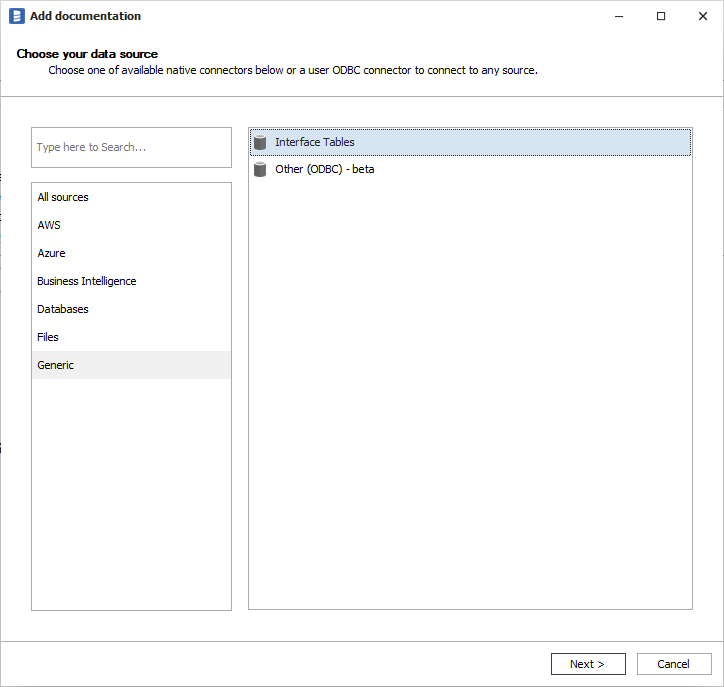Available options
Dataedo offers multiple options for connecting with the Database and downloading metadata.
- One of the native connectors.
- ODBC connector.
- Import through DDL Script.
- Import through Interface Tables.

Concept of Interface Tables
Interface Tables are a way of exchanging data with the Dataedo Repository and any other external database through a defined set of tables.

What is the need for Interface tables
In cases where there is no Metadata scanner for your database, you can consider transferring data directly to Dataedo Repository. Since the structure of dbo.databases, dbo.tables, dbo.columns, and many more is complex and mixes data gathered from both external and internal sources, it is highly recommended to do so through Interface Tables.
How to use interface tables?
You need to start with preparing a publishing mechanism, which will mirror your database structure into interface tables in Dataedo. It is up to you, what tool you choose.
Putting data in interface tables
You should put all data in following tables:
- import_tables
- import_columns
- import_tables_keys_columns
- import_tables_foreign_keys_columns
- import_procedures
- import_procedures_parameteres
- import_triggers
- import_errors
More details about the above tables are available in Dataedo Repository Schema.
Importing from interface tables
If data are already present in the Dataedo Repository, then you can start importing with the new connector.

Remember, that importing comments or description to Custom Fields are availanle in advances settings.
Resolving errors and warnings
In the case of any errors or warnings, you have left a choice of either ignoring them or fixing them and starting import once again. All errors are displayed during import and also saved in corresponding import_... tables. Also, all errors are logged in the import_errors table

Example
To lower the learning curve, we've put a sample interface database in the repository, so that you can try importing right ahead.












 Mac Lewandowski
Mac Lewandowski